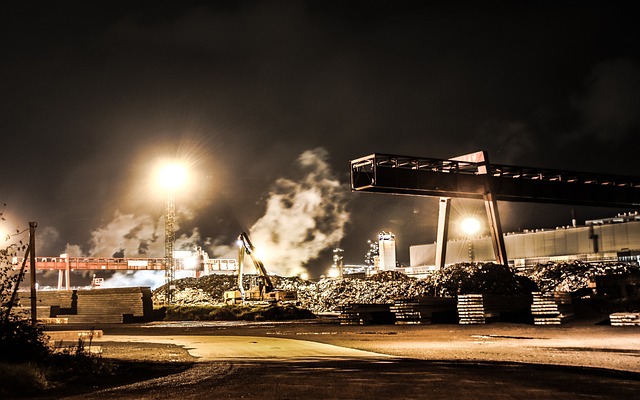Securing an industrial property loan in Denver is strategic for businesses seeking to expand or establish operations in manufacturing, warehousing, or distribution. The process involves meeting stringent eligibility criteria, understanding interest rates and repayment terms, and demonstrating strong financial health. Denver offers diverse loan options from traditional banks, private lenders, and government-backed programs like USDA or SBA loans. Thorough research, market analysis, and strategic planning are key to securing favorable loan conditions in this competitive real estate market.
“In Denver’s thriving industrial sector, securing financing for properties is a strategic move for investors and developers. This article guides you through the intricate world of industrial property loans, specifically tailored to the Denver market. From understanding the unique loan types available to navigating eligibility criteria, we delve into the factors that influence interest rates and repayment terms. Additionally, we explore the benefits and challenges of this lending sector, offering valuable tips to ensure a successful journey towards securing your ideal industrial property loan in Denver.”
- Understanding Industrial Property Loans in Denver
- Eligibility Criteria for Industrial Property Financing
- Types of Industrial Property Loan Options Available
- Interest Rates and Repayment Terms Explained
- Benefits and Challenges of Industrial Property Lending
- Top Tips for Securing the Best Industrial Property Loan
Understanding Industrial Property Loans in Denver

In Denver, securing an industrial property loan is a strategic move for businesses seeking to expand or establish their manufacturing, warehousing, or distribution operations. These specialized loans are designed to cater to the unique needs of industrial real estate, offering flexible terms and substantial funding options. The market for industrial property loans in Denver is vibrant, with various lenders competing to offer attractive rates and conditions.
Understanding the dynamics of these loans is crucial for prospective borrowers. Industrial property loans often require a thorough assessment of the business’s financial health, the property’s value, and its potential for generating stable income. Lenders will carefully evaluate factors such as occupancy rates, lease terms, and the creditworthiness of tenants to determine loan eligibility and set interest rates. This process ensures that both the borrower and lender are protected, fostering a sustainable and mutually beneficial relationship in Denver’s competitive industrial real estate market.
Eligibility Criteria for Industrial Property Financing

When considering an industrial property loan in Denver, understanding the eligibility criteria is paramount for prospective borrowers. Lenders typically assess several factors to determine fitness for funding. These include the borrower’s credit history and score, with a strong credit profile often being a prerequisite. The intended use of the property must align with industrial standards, encompassing manufacturing, distribution, or related activities. Additionally, lenders will scrutinize the property itself, valuing its condition, size, location, and potential for generating stable income.
Eligible properties should exhibit signs of robust market demand, secure tenant leases, and demonstrable cash flow to service the loan. Lenders may also consider the borrower’s experience in the industry and their ability to manage and maintain the property effectively. The loan-to-value ratio is another critical aspect, with lenders typically offering competitive rates for well-collateralized properties. Borrowers should prepare comprehensive financial disclosures and be ready to provide detailed business plans outlining their operational strategies and expected returns.
Types of Industrial Property Loan Options Available

When considering an industrial property loan in Denver, borrowers have several financing options tailored to their specific needs. These include traditional bank loans, which offer competitive interest rates and flexible terms, making them ideal for established businesses seeking to expand or refinance existing industrial properties. Alternatively, private lenders in Denver specialize in industrial real estate finance, providing access to capital quickly with less stringent requirements compared to banks. These loans can be particularly beneficial for startups or businesses with less-than-perfect credit histories.
Additionally, government-backed loans like those through the U.S. Department of Agriculture (USDA) or the Small Business Administration (SBA) are available for certain types of industrial properties located in targeted areas. These programs offer advantages such as low-interest rates and partial guarantees, encouraging investment in specific regions or sectors. Whether through traditional lenders, private financing, or government initiatives, Denver’s vibrant industrial market presents a range of loan options to accommodate diverse business requirements.
Interest Rates and Repayment Terms Explained

When securing a loan for an industrial property in Denver, understanding interest rates and repayment terms is crucial. Interest rates, expressed as a percentage, determine the cost of borrowing money. For industrial property loans in Denver, these can vary based on market conditions, the lender, and your creditworthiness. A fixed-rate loan offers consistent payments over the term, while an adjustable-rate loan (ARM) may start lower but could increase periodically.
Repayment terms refer to how long you have to pay back the loan. Lenders in Denver typically offer terms ranging from 10 to 30 years. Shorter terms usually come with higher monthly payments but less interest paid overall, while longer terms reduce monthly payments but result in more interest paid over time. Choose a term that aligns with your financial capabilities and future plans for the industrial property.
Benefits and Challenges of Industrial Property Lending

Industrial property loans in Denver offer a unique opportunity for businesses seeking expansion or investment, but they also come with their own set of considerations. One of the primary benefits is access to substantial funding, allowing business owners to acquire or develop large-scale properties suitable for manufacturing, warehousing, or logistics operations. This financing option can accelerate growth and enhance a company’s competitive edge in the market.
However, navigating industrial property lending involves challenges. Lenders often require collateral, such as the property itself, which increases financial risk for borrowers. Additionally, loan terms and interest rates in Denver’s competitive real estate market can vary widely between lenders, demanding thorough research and negotiation to secure favorable conditions.
Top Tips for Securing the Best Industrial Property Loan

When seeking an industrial property loan in Denver, understanding the market and your financial position is key. Conduct thorough research on the area’s real estate trends to determine competitive interest rates and terms. Lenders often offer specialized programs tailored for industrial properties, so explore these options to find the best fit. Pre-approval from multiple lenders can give you leverage and help negotiate favorable conditions.
Prepare a detailed business plan outlining your property’s potential, especially if it involves renovation or expansion. This demonstrates your commitment and increases your chances of securing funding. Keep financial records organized and be ready to provide proof of income and asset value. Additionally, consider the long-term goals of your industrial venture to align with loan terms, ensuring a smooth borrowing experience in Denver’s competitive market.
When considering an industrial property loan in Denver, understanding the various options, eligibility criteria, and associated benefits and challenges is crucial. By exploring different loan types, comparing interest rates, and heeding top tips for securing the best terms, businesses can navigate this landscape effectively. Remember that the right financing option can be a game-changer, fostering growth and expansion while ensuring long-term financial stability in the vibrant Denver industrial market.
